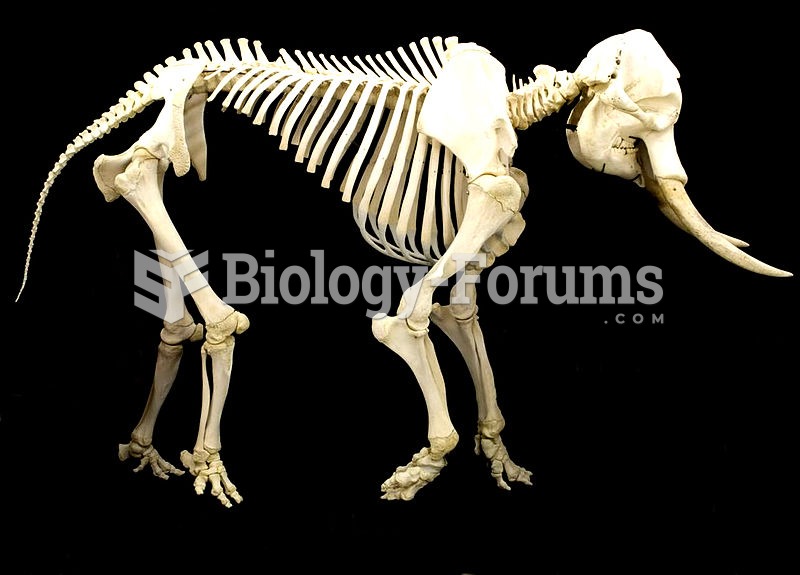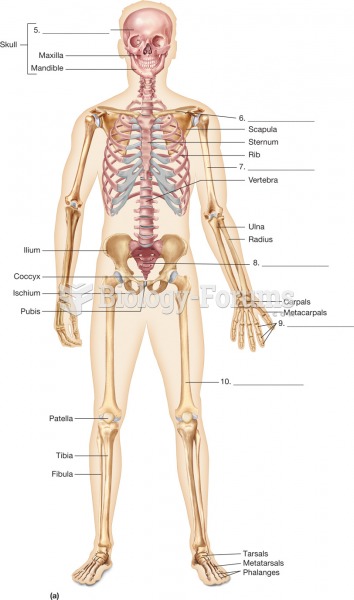|
|
|
Increased intake of vitamin D has been shown to reduce fractures up to 25% in older people.
If all the neurons in the human body were lined up, they would stretch more than 600 miles.
In the United States, an estimated 50 million unnecessary antibiotics are prescribed for viral respiratory infections.
People who have myopia, or nearsightedness, are not able to see objects at a distance but only up close. It occurs when the cornea is either curved too steeply, the eye is too long, or both. This condition is progressive and worsens with time. More than 100 million people in the United States are nearsighted, but only 20% of those are born with the condition. Diet, eye exercise, drug therapy, and corrective lenses can all help manage nearsightedness.
The most dangerous mercury compound, dimethyl mercury, is so toxic that even a few microliters spilled on the skin can cause death. Mercury has been shown to accumulate in higher amounts in the following types of fish than other types: swordfish, shark, mackerel, tilefish, crab, and tuna.







